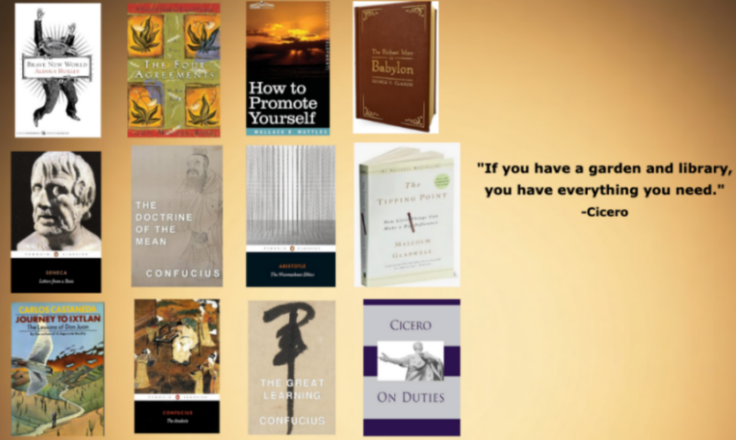Asking The Right Question

We spend much of our lives looking for answers; answers to problems, to relationships, to purpose. But what if we’ve been starting in the wrong place?
The true breakthrough often doesn’t come from the right solution; it comes from the right question.
A question sharpens vision. It reframes reality. It interrupts the noise.
The quality of our questions determines the depth of our thinking.
And the right question—like a flame—doesn’t always light the way. Sometimes it burns down the path altogether.
Philosophical Perspectives
Philosophers have long been obsessed not with answers, but with the questions that birth them. Socrates, for instance, believed in eliciting knowledge through continuous inquiry—a method we now call the Socratic Method. The purpose of philosophy is not to settle for superficial truths, but to dig deeper.
Key Philosophical Questions:
- What assumptions am I making?
- Why do I believe what I believe?
- Is the question itself valid or limited?
- What does this question reveal about human nature?
- What would this look like from another perspective—existential, absurdist, Stoic?
Example: Not “What is the meaning of life?” → but “What does it mean for something to have meaning at all?”
Psychological Perspectives
In psychology, the right question is a mirror. It reveals not just what we think, but how and why we think that way. It untangles inner conflicts, unconscious patterns, and defense mechanisms. The wrong question reinforces illusions. The right one invites self-awareness.
Key Psychological Questions:
- What am I feeling—and what’s beneath that?
- What part of me is trying to protect me?
- Is this reaction about the present or a past wound?
- What story am I telling myself—and is it true?
- How would I speak to myself if I were someone I loved?
- What need is going unmet here?
Example: Not “Why am I broken?” but “What adaptive role did this behavior once serve?”
Educational Perspective
In learning and teaching, the quality of the question often dictates the quality of thought. A teacher who asks the right question doesn't just deliver knowledge; they awaken the learner's desire to discover.
Key Educational Questions:
- What do you think this means?
- How would you explain this to someone else?
- What if the opposite were true?
- Why do you think this matters?
- Where else could this idea be applied?
Example: Not “What did the author say?” → but “Why do you think the author avoided saying certain things?”
Scientific & Research Perspective
In science, asking the right question is everything. It shapes the hypothesis, determines the experiment, and influences the outcome. A vague question leads nowhere; a precise one leads to discovery.
Key Scientific Questions:
- What is the mechanism behind this phenomenon?
- What variables am not accounting for?
- How can this be measured?
- Is this correlation or causation?
- What experiment would falsify this?
Example: Not “Is this drug effective?” → but “What is the statistically significant recovery rate difference between control and test groups under defined parameters?”
Economic Perspective
In economics, asking the right question means uncovering the incentive structures and unintended consequences that drive behavior within constraints. It's not just about money—it's about choices, trade-offs, and systems of value. Economists don’t ask “What’s happening?” but “Why is this happening the way it is?”
Key Economic Questions:
- What are the incentives at play?
- What is scarce here—and for whom?
- Who benefits, and who bears the cost?
- What are the externalities (hidden effects)?
- Is this policy addressing the symptom or the structure?
- What would people do if conditions or rules changed?
Entrepreneurial Perspective
Entrepreneurs often fail not because of poor execution, but because they start with the wrong question. Instead of asking what they can build, they must ask what needs to be solved.
Key Entrepreneurial Questions:
- What is the core problem here?
- Whose problem is it, and how painful is it?
- What do people do currently to solve this?
- What if this didn’t exist—would anyone care?
- Am I solving a symptom or the root cause?
Example: Not “How do I get more customers?” → but “What do my customers already want that I’ve misunderstood?”
Spiritual Perspective
The spiritual seeker is not merely looking for divine answers—they are looking to ask questions that transcend language and ego. The right spiritual question is often a paradox, or a silent flame that burns without smoke.
Key Spiritual Questions:
- Who am I, really?
- What remains when thought is silent?
- What is this moment lacking?
- If I let go of everything, what remains?
- Is there a witness behind the witness?
Example: Not “Where is God?” → but “Who is the one asking?”
The right question is rarely loud.
It whispers.
It waits.
It pierces through certainty like a crack in a wall.
Across all disciplines—philosophy, science, business, relationships, education, spirituality, economics, and psychology—asking the right question is the beginning of real thinking.
So maybe the greatest wisdom is not in knowing what to say next.
But in learning what to ask.
And having the courage to live in the space before the answer arrives.


Leave a Reply
You must be logged in to post a comment.